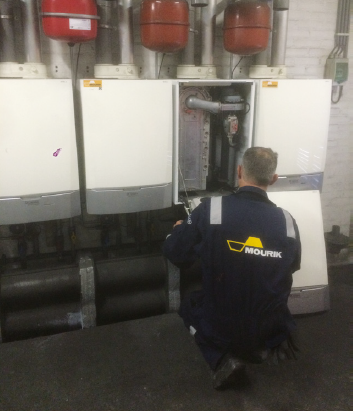Tips for maintenance, replacement and disposal
A filter system may be considered clean if all system components, including the air filters, are visibly clean. Proper maintenance begins with regular attention. The following four tips for maintenance may help to extend the life cycle and improve the efficiency of your filter system.
Some tips for maintenance

1. Monthly checks
- on the saturation of filter elements reduce the riskof microbial growth
- on tears and breakage of filter bags
- on other mechanical faults, such as damaged seals
- on the differential pressure and operating hours readings and records.
2. Replace filters
- in the event of visible leakage or damage
- in the event of saturation of the filter
- following construction or modification of the system
- if the terminal resistance indicated by the air treatment system manufacturer or supplier is reached
- if the replacement frequency (see table 6) period elapses
- preferably at the end of the pollen season (in the autumn) or the heating season (in the spring)
3. Points for attention when replacing filters:
- store spare filters in their original packaging in a dry, clean area
- wear protective clothing when replacing filters
- carefully pack the used filters to prevent the escape of pollution/contamination
- clean the system and replace damaged seals, clips, etc.
- fit the new filter with care to avoid causing damage, such as trapped bagscheck the zero readings of the pressure differential manometer and the operating hours counter.
- make a note of the following on a service card for each filter section:
– the date of replacement of filters
– the resistance reading for new filters
– the due date for the next filter change
– the name of the person replacing the filters
4.Disposal of used dirty outdoor air and recirculation filters
Filters containing harmful substances – toxins, pathogens – should be disposed of as chemical waste. This remains subject to the environmental management regulations locally applicable. Other filters may be disposed of as industrial waste, which may be surrendered to an industrial waste incineration plant, for instance. All AFPRO filters can be safely incinerated, without emitting harmful substances.






